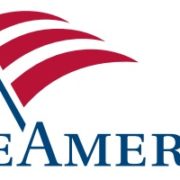SIMPLE IRA vs 401(k) – Independent Press – 07/01/09
The Independent Press
Money Matters – Skloff Financial Group Question of the Month – July 1, 2009
By Aaron Skloff, AIF, CFA, MBA
SIMPLE IRA vs. 401(k)
Q: We are evaluating which retirement plan to implement for our business. What are the advantages and disadvantages of a SIMPLE IRA retirement plan versus a 401(k) retirement plan?
A SIMPLE (Savings Incentive Match Plan for Employees of Small Employers) IRA plan can be offered by businesses that have 100 or fewer employees. A 401(k) plan can be offered by businesses that have one or more employees.
A SIMPLE IRA allows employees to contribute up to $11,500 in pre-tax salary deferrals or $14,000 if age 50 or older. A 401(k) allows employees to contribute up to $16,500 in post or pre-tax salary deferrals or $22,000 if age 50 or older.
Like a Roth IRA, the Roth version of the 401(k) allows for post tax contributions (with significantly higher limits than a Roth IRA). Unlike a Roth IRA, employees with relatively high incomes can still make contributions.
A SIMPLE IRA requires employers to either match employee contributions 100% of the first 3% of compensation (can be reduced to as low as 1% in any 2 out of 5 years.) or contribute 2% of each eligible employee’s compensation (with a $245,000 limit). A 401(k) does not require employers to match or contribute.
New Comparability, also known as Age-Weighted, is a type of 401(k) plan design that maximizes the amount contributed to a select group (typically the business owner and other key employees) while minimizing the total cost of employee contributions.
A SIMPLE IRA requires all contributions to be immediately 100% vested. A 401(k) requires employee salary reduction contributions to be immediately 100% vested. With a 401(k), employer contributions may vest over time according to plan terms.
A SIMPLE IRA is a low or no cost plan to the employer that does not require an annual IRS filing. A 401(k) is a low cost plan to the employer that requires an annual IRS filing, which is often provided by the 401(k) vendor. Based on plan design, a 401(k) may require employee discrimination testing.
Summary. As each plan offers certain advantages and disadvantages, speak with a retirement plans expert before making a decision.
Aaron Skloff, Accredited Investment Fiduciary (AIF), Chartered Financial Analyst (CFA), Master of Business Administration (MBA) is CEO of Skloff Financial Group, a Registered Investment Advisory firm. He can be contacted at www.skloff.com or 908-464-3060.
Click Here for Your Long Term Care Insurance Quotes












